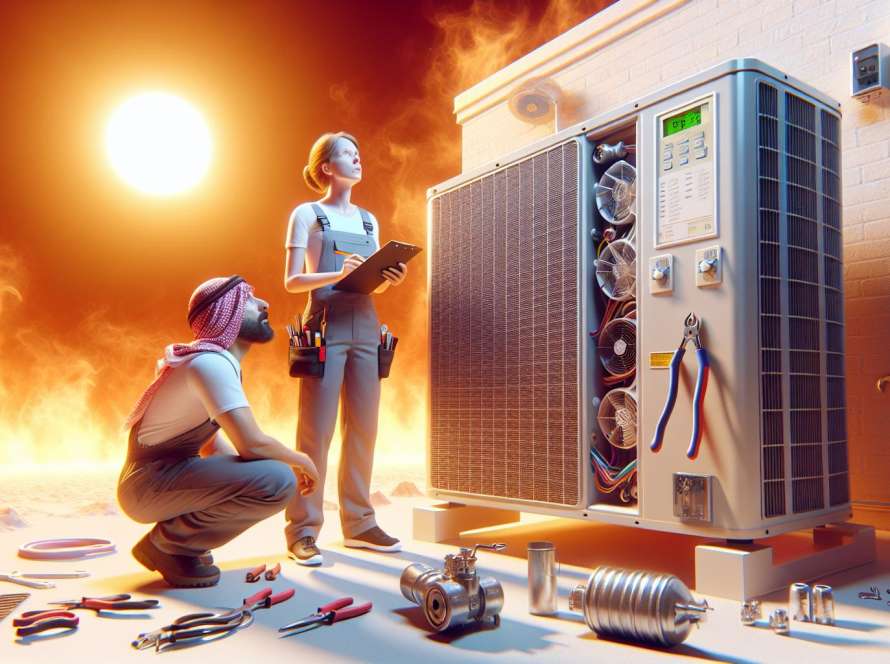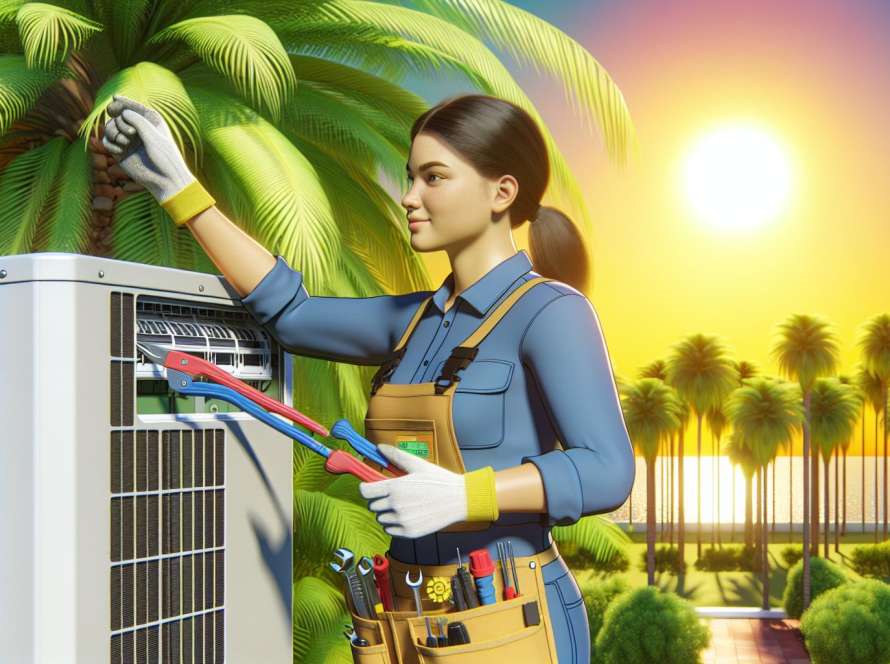So, you’re enjoying the Florida sunshine, but suddenly your AC unit starts acting up. Don’t sweat it – we’ve got your back. Recognizing warning signs early can save you from a major AC breakdown. Our expert team is here to guide you through the telltale signs that your AC unit might need repair. From strange noises to weak airflow, we’ll cover it all. Let’s dive in and ensure your AC keeps you cool all year round.
Strange Noises Coming from Your AC Unit
When it comes to Florida AC unit repair, one of the most common warning signs is strange noises emanating from your system. These sounds might indicate underlying issues that require immediate attention. Here’s how to tackle this problem based on your level of experience:
For Beginners: Identifying the Noises
- Listen carefully to the sounds your AC unit is making.
- Note down if you hear buzzing, rattling, banging, or screeching noises.
- Pay attention to when the sounds occur (e.g., during startup, while running).
For Intermediate Homeowners: Troubleshooting Steps
- Check for loose components that could be causing the noise.
- Inspect the fan blades for any obstructions or damage.
- Clean or replace air filters to see if the noise subsides.
- Lubricate moving parts such as the fan motor or bearings.
- Tighten any loose screws or bolts in the unit.
- Consider calling a professional if the issue persists for a comprehensive assessment.
Addressing strange noises from your AC unit promptly can prevent further damage and ensure your system operates efficiently. Remember, regular maintenance is key to extending the lifespan of your cooling system.
Weak Airflow in Your Home

When you notice weak airflow in your home, it’s a clear sign that there might be underlying issues with your AC unit. Here are some actionable steps you can take based on your experience level:
For Beginners: Understanding the Basics
- Check air vents: Ensure that all air vents in your home are open and unblocked.
- Inspect air filters: Regularly check and replace dirty air filters to improve airflow.
- Clear obstructions: Remove any furniture or objects blocking the airflow from vents.
- Keep outdoor unit clear: Trim any vegetation or debris around the outdoor unit to allow proper airflow.
For Intermediate Homeowners: Enhancing Your AC Performance
- Inspect ductwork: Check for leaks or damage in the ductwork that may be affecting airflow.
- Clean evaporator coils: Dust and debris on the evaporator coils can restrict airflow; clean them regularly.
- Consider a programmable thermostat: Optimize airflow by using a programmable thermostat to regulate temperature and airflow efficiently.
- Schedule professional maintenance: Regular tune-ups by a professional can identify and fix airflow issues early.
- Assess duct design: Evaluate the duct design to ensure it promotes optimal airflow throughout your home.
- Upgrade your insulation: Proper insulation can help maintain consistent airflow and temperature distribution.
- Install a zoning system: Zoning systems can control airflow to specific areas, enhancing comfort and energy efficiency.
- Consider HVAC system upgrades: If airflow issues persist, it may be time to upgrade to a more efficient HVAC system.
Remember, addressing weak airflow promptly can prevent further problems and ensure your AC unit operates efficiently. If issues persist, it’s always best to consult with a professional HVAC technician for a thorough inspection and solution.
Warm Air Coming from Vents
When warm air starts flowing through your AC vents in Florida, it can be a sign of underlying issues that need to be addressed promptly. Whether you’re a beginner or an experienced homeowner, identifying this warning sign is crucial in maintaining the efficiency of your AC unit. Here’s a breakdown of what you can do based on your experience level:
For Beginners: Checking the Basics
- **Ensure your thermostat is set to “Cool” and not “Heat.”
- Inspect your air filters and replace them if they are dirty.
- Check your vents for blockages such as furniture or dust accumulation.
- Schedule regular maintenance with a professional to prevent future issues.
For Intermediate Homeowners: Digging Deeper
- Inspect your outdoor unit for debris that may be obstructing airflow.
- Examine your ductwork for leaks or gaps that could be causing warm air leaks.
- Consider upgrading to a programmable thermostat for better temperature control.
- Evaluate the age and condition of your AC unit to determine if it needs repairs or replacement.
- Perform a load calculation to ensure your AC unit is the right size for your home.
- Consider installing a zoning system to control temperatures in different areas.
- Inspect your insulation to prevent heat infiltration and loss.
- Consult with a professional HVAC technician for a comprehensive assessment and recommendations.
Addressing warm air coming from your vents promptly can prevent further issues and help your AC unit operate efficiently, especially in the hot climate of Florida. Remember, it’s always best to tackle HVAC problems early to avoid costly repairs down the line.
Unusual Odors Emanating from the AC Unit
For Beginners: Identifying Common Smells
- Musty: Indicates mold or mildew growth in the system.
- Burning: Could mean an electrical issue or overheating components.
- Rotten Eggs: Signals a potential gas leak in the system.
- Chemical: Points to refrigerant leakage.
For Intermediate Homeowners: Taking Action
- Check Air Filters: Replace dirty filters to prevent odors from circulating.
- Clean Condensate Drain Line: Avoid mold buildup that causes musty smells.
- Inspect Ductwork: Look for signs of mold, rodents, or debris.
- Schedule Professional Maintenance: Get a thorough inspection and cleaning.
- Consider UV Lights: Install UV lights to kill mold and bacteria.
- Upgrade to a High-Efficiency Filter: Combat odors with better filtration.
- Evaluate Duct Sealing: Seal duct leaks to prevent odors from entering rooms.
- Monitor Refrigerant Levels: Address leaks promptly to avoid chemical smells.
Remember, addressing unusual odors promptly can help diagnose and prevent potential issues with your AC unit.
Conclusion
In my final thoughts, being aware of the warning signs of AC unit issues is crucial for maintaining a comfortable indoor environment. By recognizing and addressing unusual odors promptly, we can prevent potential breakdowns and costly repairs. Remember, musty, burning, rotten eggs, or chemical smells could indicate underlying problems that need attention. Whether you’re a beginner or an intermediate homeowner, taking proactive steps like replacing air filters, cleaning condensate drain lines, and scheduling regular maintenance can help keep your AC unit running smoothly. Consider implementing additional measures such as UV lights, high-efficiency filters, duct sealing, and refrigerant level monitoring to combat odors effectively. Stay vigilant and proactive to ensure your AC unit operates efficiently and effectively.

